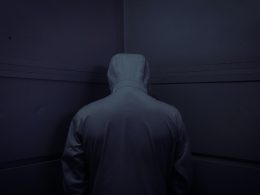What Is Password Cracking?
Password cracking involves computational and/or other methods to break — or “crack” — a password authentication step. Password crackers are very powerful and not always used for malicious intentions.
Password cracking is also the process of recovering passwords from data stored in or transmitted by a computer system in scrambled form. However, the “recovering” aspect of password cracking could be questionable.
For example, password cracking using a brute-force attack is commonly used by hackers. In this attack, hackers repeatedly try guesses for the password to find the right one. Hackers “brute force” people’s passwords by using this resource-intensive method.
Another method includes password spraying. This is when the guessing of passwords occurs slowly and through automation. This way, the hacker could avoid ringing alarm bells when repeatedly inputting wrong passwords.
How To Make A Password Harder To Crack
The time to crack a password is related to its strength. Higher password bit strength exponentially increases the number of candidate passwords that must be checked to crack the password.
Password bit strength relates to the entropy of passwords. In simple terms, bits of entropy relates to how easily a password could be guessed by someone who doesn’t the password.
Password entropy is connected to the character set, which could be expanded using lowercase, uppercase, numbers, and unique symbols. It also involves password length.
How Long Does It Take To Crack A Password
To give you an idea of how important it is to use an expanded character set, it only takes 8 days to crack an 8-character password that uses only lowercase characters. Hackers can go through all the combinations with password-cracking tools.
However, for a hacker to crack an 8-character password that uses uppercase, lowercase, numbers, and unique symbols, he will need 80 or more years for a cracking tool to try all possible password combinations.
Create An Uncrackable Password
Technically, all passwords can be cracked. However, it is about the feasibility of cracking it and preventing hackers from targeting you and your accounts.
If it takes the hacker 12 years to crack your password, he will move on. However, if it takes the hacker 10 minutes to crack it, he will likely try the password for your other accounts and perhaps even target other accounts of yours.
Expand The Character Set
It is well-established that using a mix of uppercase, lowercase, numbers, and unique symbols will help prevent your password from being cracked.
Choose Length
The longer your password is, the better. Your password should be at least 11-15 characters long. Some sources claim that the minimum length of your password should be 12 characters.
Length is a crucial aspect of password strength. For example, a 12-character long password gives you over three sextillion possible combinations. That is a 3 with 21 zeros after it.
Currently, 12 characters is a good length to aim for your passwords. Every day, computers become more powerful, and there could be a day when cracking 12-character passwords is an easy feat.
This illustrates the ever-increasing impressive power of computers and how our security habits must adapt to this progress.
Aim For Randomness
Your password should not include your personal information or regular words. Even if you use words that mean nothing together (ex. JollyToothpaste), these passwords are still fallible to dictionary attacks.
A dictionary attack is when a hacker uses a dictionary headwork list to generate possible passwords. This list is then used to systematically guess a password by trying many common words and their simple variations.
Instead, try integrating random characters within your passphrase. So, instead of expecting JollyToothpaste to protect your financial information, try Jw*1oll24byTo0bcothpi3as*te.
Never Re-Use Passwords
Unique passwords add an additional layer of security to your life. Consider all your accounts to be like vaults in a bank. Which bank is more secure: the bank with one lock at the front door or the bank with locks at the front door and every vault?
Data breaches always happen, and no company is infallible. Microsoft, Twitter, and Capital One have all experienced massive data breaches where hackers stole user account information. Your passwords can become compromised through no fault of your own.
Thus, not re-using your passwords is the biggest favor you could do for yourself. Inevitably, when your password becomes compromised, you could just change that one password.
Moreover, if a hacker gains unauthorized access to one of your accounts, your other accounts remain secure. This helps stop or at least slow the hacker from taking over your digital life.
Trust A Password Manager
You may worry that you can’t remember all your passwords if they are all structured randomly. However, password managers exist for this purpose.
Most cyber-security specialists agree that password managers are the most secure way to protect your passwords. Luckily, Agency’s personal cybersecurity plan includes a password manager!
Strong passwords and password managers are not the only necessary cybersecurity tools, however. Effective cybersecurity is a software and practices toolbox that secures you and your information.
Agency offers affordable, business-level security that uses several industry-standard tools to comprehensively protect you.
The personal plan includes:
- 24/7 Active Security Monitoring & Response by U.S. Professionals
- VPNs
- Next-Gen Antivirus/EDR
- ID Theft Coverage
- Active Dark Web Monitoring
- Personal Information Removal
Take steps to protect your digital security through Agency! Signing up for the newsletter to receive a free one month trial.







